
Mobile Empowerment: Exploring the viability of a
Mobile Empowerment: Exploring the viability of a ‘cinema-in-a-backpack’ Alta van der Merwe; Aurona Gerber; Maria Olivares; Mélani Prinsloo; Michael Petersen This paper introduces a project called MOSAIC 2B where micro-entrepreneurs are equipped with a cinema-in-a-backpack and the necessary training to engage with the business opportunity it presents. The cinema-in-a-backpack is a mobile, easy to use product, which enables entrepreneurs to project movies that become part of their business offering to local communities. The aim of the project is to test alternative distribution channels for multi-media content. Firstly, to make the solution cost effective a delay tolerant network (DTN) was developed through which content is sent to the micro-entrepreneurs using public busses carrying infostations to bus depots in rural areas. Micro-entrepreneurs receive the content by visiting the bus depots. Furthermore, using a business application running on a tablet the micro-entrepreneur orders and downloads the content and plans their screening events while sharing detail on the actual event. Lastly, the information collected via the business application is packaged using visual analytics that presents each micro-entrepreneur with business intelligence to assist him/her to optimise their cinema business. In addition to the development of these technologies, a further aim of this project is to respond two specific challenges in the SA market. Firstly, the inaccessibility of cinemas in rural areas and secondly the challenges experienced by entrepreneurs to run sustainable businesses. For that reason, a concept of a micro-franchise model for the cinema-in-a-backpack has been developed that exploits the advantage of the DTN technology to spur entrepreneurial activities in rural areas. In this paper we report on the first year of the social experiment and highlight the challenges that we faced as well as the obstacles entrepreneurs faced, in introducing the project to the entrepreneurs. These challenges are discussed from a social, technical and operational perspective. Data was collected from the entrepreneurs using interviews and surveys focusing on their current situation including the demographics of the entrepreneur, current activities and knowledge of technology. Some of the findings include from the project side the rules and regulations with regard to the distribution of multi-media content, the unrealistic expectations from the project description that was not aligned with reality and the scope creep with regard to the design of the system. From the entrepreneurial side some of the findings are the background of the entrepreneur and expectations from the project leaders with limited resources, the distance to travel for activities related to the project and the limited knowledge on the business case. This paper contributes to our knowledge of the challenges that we face in using technology for entrepreneurial activities in rural South Africa. The results could be used to support decision makers in South Africa with regard to the realities that young entrepreneurs face due to a number of constraints.
© Copyright 2025


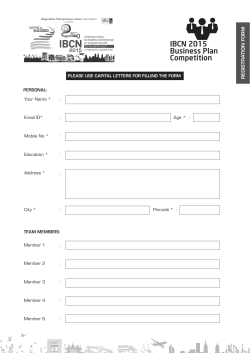
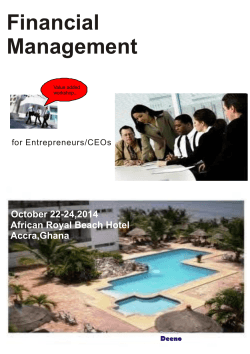



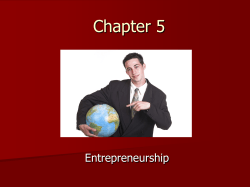
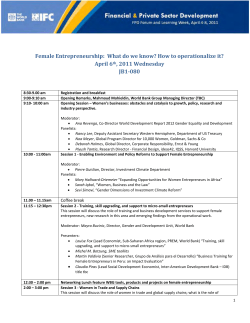

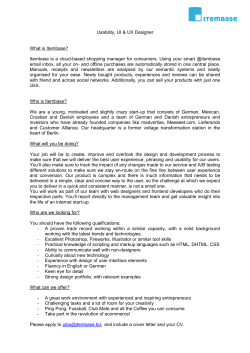
![[BUSINESS INTELLIGENCE]](http://cdn1.abcdocz.com/store/data/001600231_1-bfea1307c87543ea6df3670ad54aca50-250x500.png)









